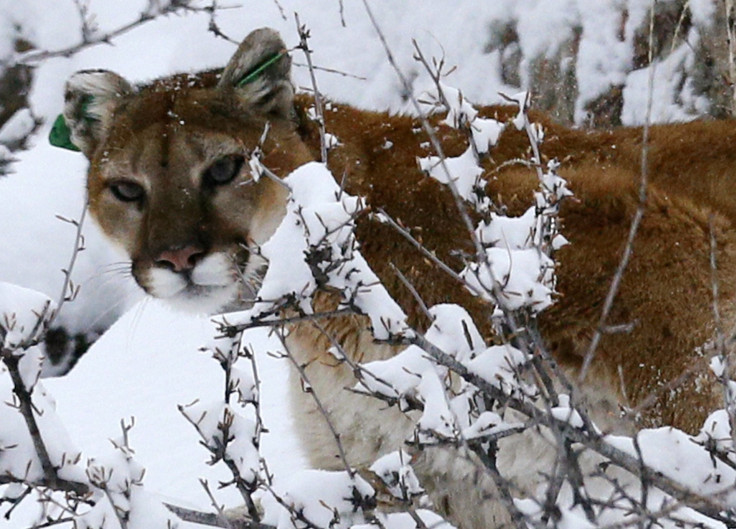Colorado Approves Controversial ‘Predator Control Plans’ To Help Mule Deer Population

As part of its predator management strategy, Colorado’s Parks and Wildlife (CPW) Commission approved Wednesday two controversial ‘Predator Control Plans’ to help the state’s dwindling mule deer population. In a unanimous vote, the commission decided to move ahead with its plan to reduce the numbers of mountain lions and black bears in two regions within the state.
The process of consultation about managing the deer population in the Piceance Basin and Upper Arkansas River areas began September 2015. And while a decision to implement those studies was reached Wednesday, CPW researchers and managers will continue a scientific approach toward their learning of the complex wildlife systems of the state, CPW said in a statement.
Three public meetings were held over the fall and numerous public comments were considered by the CPW before it reached its decision. Most of the participants in the meetings and those who provided comments to the commission were skeptical or against the killing of predators.
“It is very clear that people are passionate about this issue and it was helpful hearing from both sides. … CPW takes its responsibility to ethically manage wildlife in public trust very seriously,” Jeff Ver Steeg, assistant director of policy and planning at CPW, said in the statement.
The approved plans are part of the Colorado West Slope Mule Deer Strategy, which is testing the predator control approach in the two regions where CPW thinks the deer population is not being hindered by habitat conditions. According to the proposals, 15 mountain lions and 25 black bears would be killed every year.
A number of groups and individuals opposed the decision, with some accusing the CPW of favoring hunters’ interests. Revenue from hunting and fishing licenses makes up about 90 percent of CPW’s funding, according to the Denver Post.
“The Commission’s approval of the state’s two proposals imposes a death sentence on hundreds of Colorado’s mountain lions and black bears, including their dependent kittens and cubs, and the decision disregards thousands of Coloradans who voiced their disapproval of these studies,” Aubyn Royall, Colorado state director for Humane Society, reportedly said.

The National Wildlife Federation (NWF), a conservation group that also represents many hunters, said the state needed to address habitat loss.
“We believe that habitat degradation from energy, and residential development, which has been confirmed by CPW biologists for years, should be the primary focus of scientifically-based wildlife management,” NWF’s regional director Brian Kurzel reportedly said.
Wildlife officials in the state did not oppose plans for up to 15,000 new oil and gas wells this year in northwestern Colorado, critical mule deer habitat.
© Copyright IBTimes 2024. All rights reserved.




















